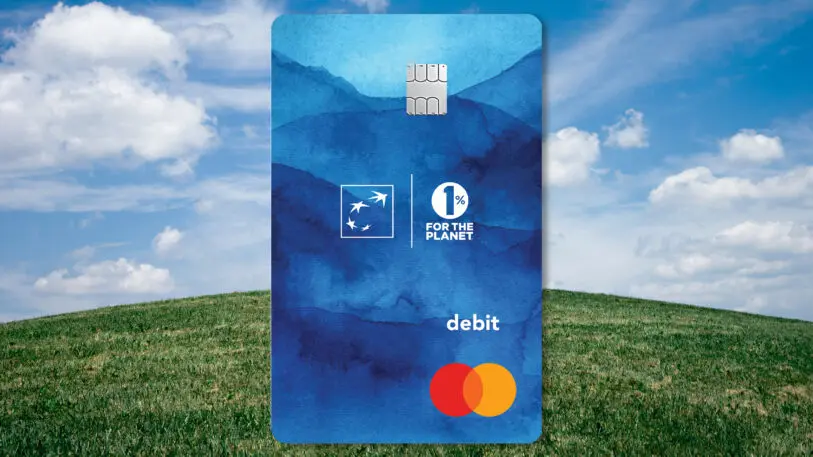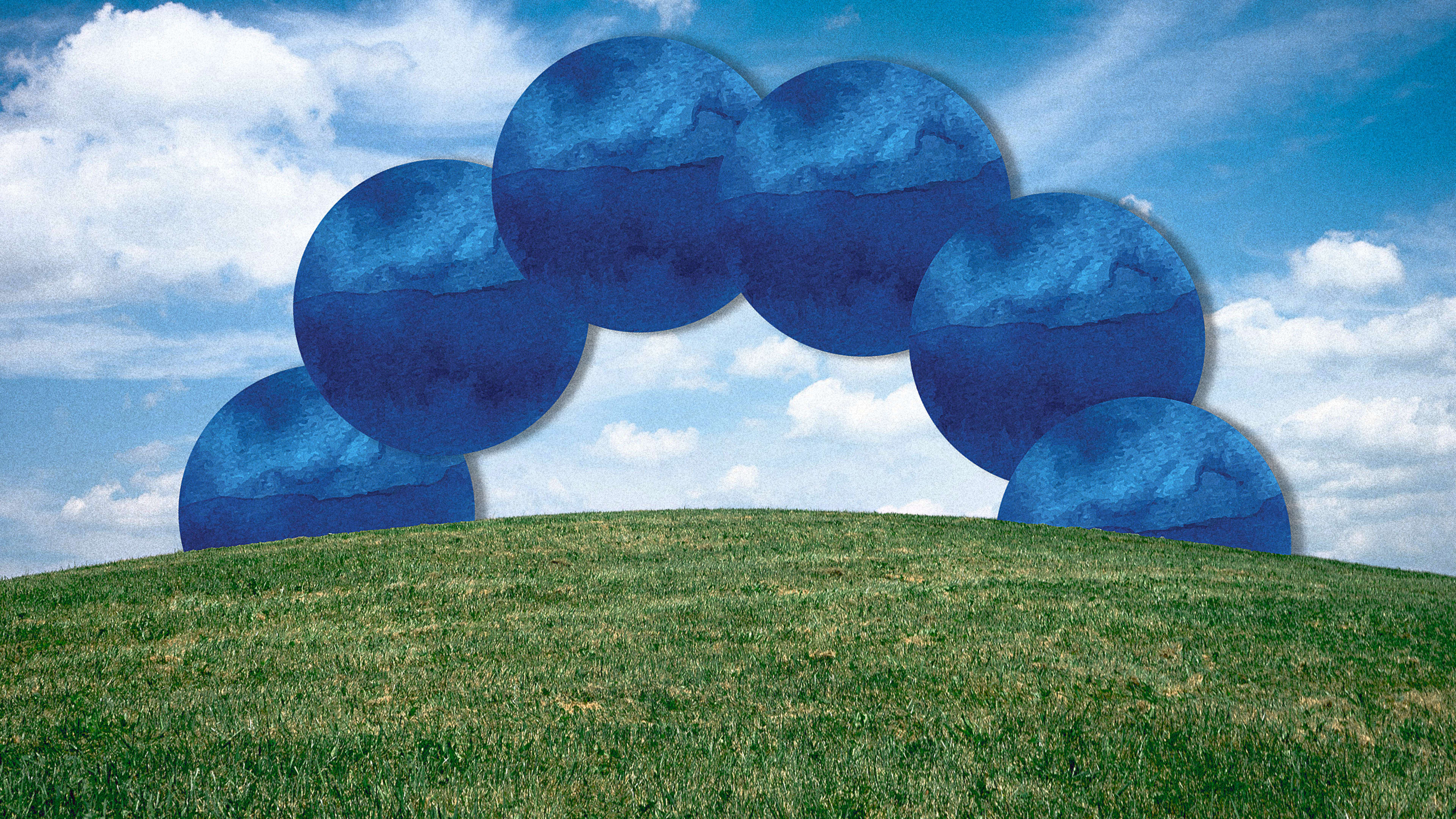If you have an account with a large U.S. bank such as JPMorgan Chase or Wells Fargo, you’re most likely financing fossil fuel extraction. These banks help finance billions of dollars of new coal, oil, and gas projects every year, using your money that’s sitting in their accounts. For those who want their money to better the planet rather than worsen climate change, Bank of the West has launched a new checking account that donates 1% of its revenue to environmental nonprofits, tells you the carbon footprint of your purchases, and comes with a compostable debit card.
“On the heels of the Paris climate accord, we made the decision that we were going to stop financing the most harmful forms of energy extraction, so things like tar sands, coal, fracking, but also things like tobacco,” says Ben Stuart, chief marketing officer at Bank of the West. The tobacco industry, he explains, produces 4.5 trillion cigarette butts every year—the most littered item on the planet, a prominent source of microplastics, and a major contributor to ocean pollution. “We’ve taken a very strong environmental stance that no other major bank here can match.”

That 1% donation comes at no cost to the account holder; it’s solely from the revenue Bank of the West makes from the account. The first environmental organization to receive those donations is Protect Our Winters, a nonprofit started by snowboarder Jeremy Jones that focuses on turning “outdoor enthusiasts into climate advocates” and pushes for climate-friendly policies such as carbon pricing. Stuart says it made sense to launch with this nonprofit since Bank of the West has worked with them in the past, and the winter sports industry is a big part of the areas Bank of the West serves. In the future, that 1% donation will go to other environmental nonprofit partners, but there’s not yet a set schedule or plan.
The 1% for the Planet Account comes with a debit card made from 100% compostable plastic (you’ll just need to remove the magnetic stripe and metal chip when you’re done with it), and when account holders access their digital records, they’ll see alongside their transaction information the carbon footprint of that purchase. Alongside a $10 purchase at Safeway, for example, you’d see a 6.7 pound carbon impact. That may not be the exact carbon footprint of your specific groceries—the account doesn’t know what items you purchased—but it’s an approximation based on the Aland Index, a cloud-based software from Doconomy that uses billions of financial transactions and consumer data to calculate a carbon output. Multiple financial institutions use the Aland Index, including Mastercard in the Nordics and Baltics; Bank of the West currently has exclusive use of this tool in the U.S.
Most people may not know the carbon impact of their regular purchases, or how their bank uses their money for fossil fuels. Bank of the West wants to help people be aware of these things, so they can make more environmentally friendly decisions. “I think one of the things that’s implicit in everything we’re doing at Bank of the West right now is to get to that eureka moment where they realize that their bank is part of any other product that they’re using,” Stuart says. “The consumer has no problem picking up a thing of yogurt, flipping it over, and seeing if it’s made with organic ingredients. . . . It’s the same thing: How is your bank made? What are the decisions that it made, and are those decisions harmful to the planet?”
Small banks may have great environmental policies, but Bank of the West, with more than 600 branches and more than $92.9 billion in assets, has the scale to make an even bigger impact. For so long, Stuart says, eco-friendly finance products such as green bonds have only really been available to social investors or asset managers. “There wasn’t really a sustainable finance product that you could put in your purse, in your wallet, or on your phone, and that was accessible to anybody,” he says. What this checking account does, he adds, is give anyone the ability to take climate action with their bank account and their purchases, at any time.
Recognize your brand’s excellence by applying to this year’s Brands That Matter Awards before the early-rate deadline, May 3.
